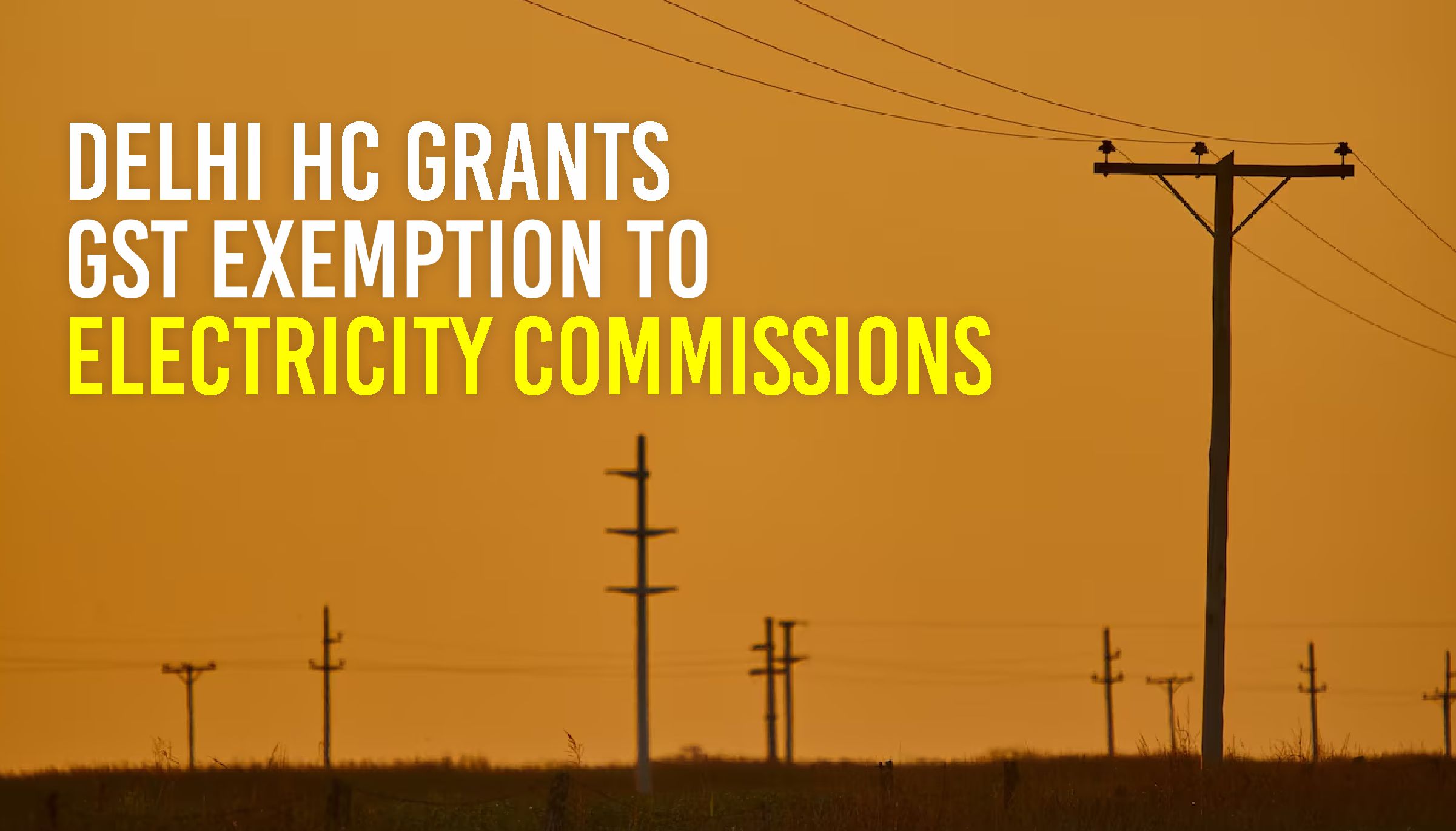Delhi HC Grants GST Exemption to Electricity Commissions

The Delhi High Court has ruled that fees collected by the Central Electricity Regulatory Commission (CERC) and Delhi Electricity Regulatory Commission (DERC) are exempt from GST. This significant decision ends a contentious debate over whether regulatory fees fall under taxable services.
The ruling stems from show cause notices (SCNs) issued by tax authorities, which demanded GST on regulatory fees under the CGST Act, 2017, and IGST Act, 2017. The court clarified that these fees are statutory in nature and do not qualify as taxable business activities.
Why Were Electricity Commission Fees Challenged?
The tax authorities classified the fees under Service Accounting Code 998631, which pertains to “support services to electricity transmission and distribution.” This classification subjected the fees to an 18% GST.
However, the commissions argued that their functions under the Electricity Act, 2003, are statutory and carried out in the public interest—not for profit.
Key Takeaways from the Delhi HC Judgment
1. Statutory Duties Are Not Business Activities
-
Section 2(17) of the CGST Act defines ‘business’ as activities performed with a profit motive.
-
The court ruled that tasks like setting tariffs and issuing licenses are statutory obligations, not commercial services.
2. Exemptions for Quasi-Judicial Bodies
-
Schedule III of the CGST Act exempts courts and tribunals from GST.
-
The court confirmed that CERC and DERC, being quasi-judicial bodies, fall within this exemption.
3. Inseparable Functions
- The court rejected the argument that regulatory and adjudicatory roles can be separated. These functions are integral to the commissions’ statutory mandate.
4. Statutory Exemptions Cannot Be Overridden
-
Notifications under the CGST or IGST Acts cannot override exemptions provided in the CGST Act.
Implications of the GST Exemption Ruling
1. Reduced Tax Compliance Burden
Electricity commissions will no longer face arbitrary GST demands for performing statutory functions. This eases the financial and operational burden on these bodies.
2. Precedent for Other Statutory Bodies
This ruling could serve as a benchmark for similar cases involving statutory authorities. It reinforces the principle that statutory functions are distinct from business activities.
3. Clarification for Taxpayers
The decision provides clarity for businesses interacting with statutory bodies, ensuring a fairer tax environment.
Conclusion
The Delhi High Court’s ruling granting GST exemption to electricity commissions’ fees is a landmark decision. It protects statutory bodies from undue tax burdens and underscores the importance of distinguishing between regulatory functions and business activities.
For stakeholders, this judgment offers clarity on GST applicability and reaffirms the principle of fairness in tax law.

